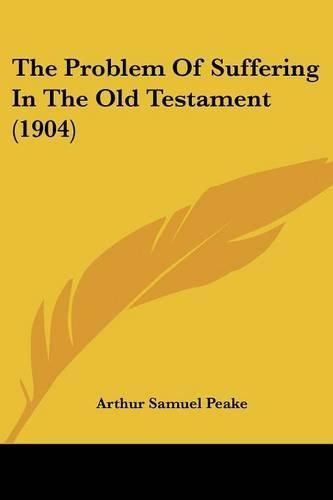Readings Newsletter
Become a Readings Member to make your shopping experience even easier.
Sign in or sign up for free!
You’re not far away from qualifying for FREE standard shipping within Australia
You’ve qualified for FREE standard shipping within Australia
The cart is loading…






Purchase of this book includes free trial access to www.million-books.com where you can read more than a million books for free. This is an OCR edition with typos. Excerpt from book: ings of the righteous, although the prophet demands one, and expects to receive it on his watch- tower. What is given him is an assurance that they will soon be ended, and that by his fidelity the righteous shall save his life. The righteous one is Judah.7 It is true that in this estimate of the nation’s character the prophet is sharply divided from his predecessors. This is usually explained by the fact that in the meantime the Deuteronomic Reformation had taken place. Still, on any theory, which places the prophecy before the fall of Jerusalem, there is difficulty. If it is the Chaldean oppression which vexes the prophet’s soul, that did not begin till the reign of Jehoiakim had lasted for some years, and under that worthless monarch the Reformation had beenundone, so that Judah could seem righteous only to a very optimistic gaze. If Budde is right in identifying the oppressor with Assyria, and fixing the date about 615 B.c., then it is true that Josiah was on the throne and the Reformation policy was still in force. Judah wasa righteous people, externally, at any rate; but its condition was prosperous. Assyria was decrepit, its rule altogether relaxed; why should the prophet complain of its career of unchecked conquest, or why cry out so bitterly of his country’s suffering ? The difficulty presents itself in this way. Habakkuk’s problem is the prosperity of the wicked and the suffering of the righteous nation; but, in his time, on the usual view of his date, when the nation was righteous, it was for the most part prosperous, and during its period of wickedness its fortunes went from bad to worse. 7The singular suggests to a modern reader that the individual is intended, every righteous one shall live by his fidelity, all the more so as the use of the passage in Hebrews, and …
$9.00 standard shipping within Australia
FREE standard shipping within Australia for orders over $100.00
Express & International shipping calculated at checkout
Purchase of this book includes free trial access to www.million-books.com where you can read more than a million books for free. This is an OCR edition with typos. Excerpt from book: ings of the righteous, although the prophet demands one, and expects to receive it on his watch- tower. What is given him is an assurance that they will soon be ended, and that by his fidelity the righteous shall save his life. The righteous one is Judah.7 It is true that in this estimate of the nation’s character the prophet is sharply divided from his predecessors. This is usually explained by the fact that in the meantime the Deuteronomic Reformation had taken place. Still, on any theory, which places the prophecy before the fall of Jerusalem, there is difficulty. If it is the Chaldean oppression which vexes the prophet’s soul, that did not begin till the reign of Jehoiakim had lasted for some years, and under that worthless monarch the Reformation had beenundone, so that Judah could seem righteous only to a very optimistic gaze. If Budde is right in identifying the oppressor with Assyria, and fixing the date about 615 B.c., then it is true that Josiah was on the throne and the Reformation policy was still in force. Judah wasa righteous people, externally, at any rate; but its condition was prosperous. Assyria was decrepit, its rule altogether relaxed; why should the prophet complain of its career of unchecked conquest, or why cry out so bitterly of his country’s suffering ? The difficulty presents itself in this way. Habakkuk’s problem is the prosperity of the wicked and the suffering of the righteous nation; but, in his time, on the usual view of his date, when the nation was righteous, it was for the most part prosperous, and during its period of wickedness its fortunes went from bad to worse. 7The singular suggests to a modern reader that the individual is intended, every righteous one shall live by his fidelity, all the more so as the use of the passage in Hebrews, and …